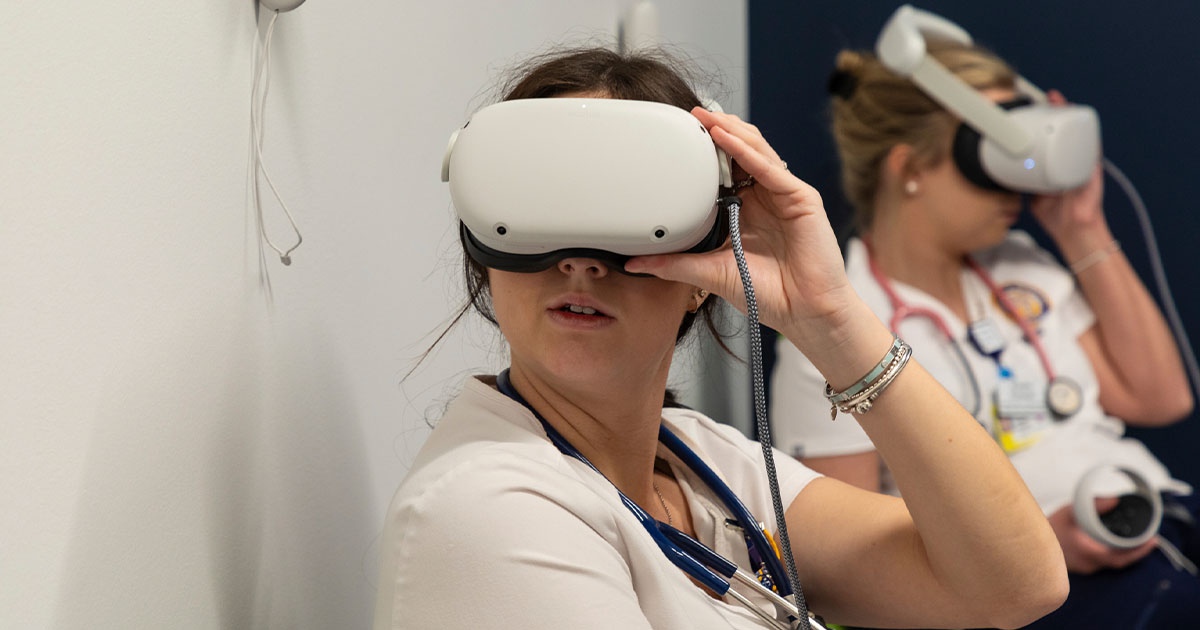
@ShahidNShah


Tech-enabled experiential learning is elevating nursing curriculums to engage more students – and produce more graduates who say they're ready to hit the ground running in a digital health environment.
Read on healthcareitnews.com
The University of Rochester School of Nursing underwent a transformative journey over five years, shifting from traditional teaching methods to a tablet-driven metaverse of learning. The initiative, known as the Redefining Our Classroom Initiative (iROC), equipped students with iPads and engaged them in interactive activities, simulations, and assessments. By mid-2023, the program reported a remarkable 50% increase in enrollment, defying the trend of declining enrollments in higher education during the COVID-19 pandemic.
The nursing program's immersive education approach included a $15 million facility expansion with state-of-the-art technology, featuring skills labs, simulation labs, and virtual reality (VR) rooms. The tablets loaded with specialty apps allowed students to participate in various interactive and collaborative learning activities, contributing to the development of critical thinking and clinical judgment skills.
The program's success was attributed to strong leadership support, faculty buy-in, and dedicated instructional designers working with educators. The hands-on simulated patient encounters, recorded for review and immediate feedback, aimed to prepare practice-ready nurses for the evolving healthcare landscape.
The use of VR technology, including eight VR headsets offering 80 scenarios, proved effective in creating a safe space for experiencing high-pressure clinical situations. The success of the immersive education model was recognized by the American Association of Colleges of Nursing, which awarded UR Nursing the 2023 Innovations in Professional Nursing Education award.
The integration of technology, measured through the SAMR model (Substitution, Augmentation, Modification, and Redefinition), demonstrated a 100% modification in learning. Students reported improved critical thinking, with 93% acknowledging that their experience with academic electronic health records system charting enhanced their critical thinking skills.
The faculty's proficiency in technology was highlighted by their use of SimulationiQ software for real-time comments on student progress during simulations. Debriefing post-simulation was found to enhance students' understanding of concepts. The program's commitment to continuous improvement was reflected in its "fail forward" mindset, actively seeking ways to increase student opportunities for instructor evaluations.
Continue reading at healthcareitnews.com
Introduction Welcome, esteemed readers, to a comprehensive exploration of the remarkable changes taking place in the realm of healthcare data collection. In a fast-paced world where efficiency is …
Posted Jan 4, 2024 Patient Engagement Patient Experience
Connecting innovation decision makers to authoritative information, institutions, people and insights.
Medigy accurately delivers healthcare and technology information, news and insight from around the world.
Medigy surfaces the world's best crowdsourced health tech offerings with social interactions and peer reviews.
© 2025 Netspective Foundation, Inc. All Rights Reserved.
Built on Jul 11, 2025 at 12:10pm